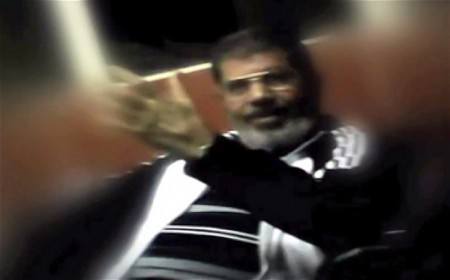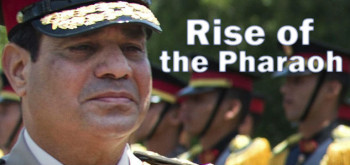
by John Amaruso
Mohammed Morsi, Egypt’s only legitimate President, was the only leader in local history ever democratically elected. s overthrown in a military coup earlier this year after demonstrators took to the streets demanding his resignation. In less than two weeks the military intervened, placing Mohammed Morsi under arrest, declaring a suspension of the constitution and implemented an interim government. According to reports Mohammed Morsi was defiant and bothered, interrupting the court sessions repeatedly to the point where the judge adjourned the trial until January 8.
The long time feud between Egypt’s ruling class and Mohammed Morsi’s Muslim Brotherhood is being relived in the latest struggle for power over one of the Middle East’s most powerful countries. Supporters of Mohammed Morsi say the military’s removal of Mohammed Morsi in July of this year was an attempt to reinstate the police state once firmly embedded under former dictator and strongman Hosni Mubarak.
 When the Arab Spring first found its way to Egypt, Mohammed Morsi, 62 years old, was sitting in jail for his participation in Muslim Brotherhood activities, an offense which was punishable by torture under Mubarak and the military. Mohammed Morsi now finds himself once again in jail, trying to fight charges of inciting violence, which in Egypt could result in a death sentence.
When the Arab Spring first found its way to Egypt, Mohammed Morsi, 62 years old, was sitting in jail for his participation in Muslim Brotherhood activities, an offense which was punishable by torture under Mubarak and the military. Mohammed Morsi now finds himself once again in jail, trying to fight charges of inciting violence, which in Egypt could result in a death sentence.
This is the second time since the Arab Spring that power has shifted hands in Egypt under dramatic circumstances. Meanwhile former dictator Hosni Mubarak faces a different set of charges before the same court.
Egypt’s Only ‘Legitimate’ President in Chains
Mohammed Morsi decried in the courtroom that the trial is ‘illegitimate’ and refused to respect the court’s demand that he be silent for the opening day of hearings. Supporters of Mohammed Morsi remain vigilant, occupying the outer area of the court building, carrying signs of protest and disdain for the court’s decision to try Mohammed Morsi on what they see as baseless charges. The Muslim Brotherhood says their presence in Egyptian politics will not be oppressed like how it was under Mubarak, and they refuse to leave the streets until the army sets Mohammed Morsi free and reinstates him as President.
The street demonstrations have turned violent, with Egyptian military forces firing on protesters, killing dozens and arresting thousands. In August, a protest stakeout was raided by the military, resulting in the deaths of over 200 people. Mohammed Morsi’s crime remains unconfirmed, although the court says him and 14 other Islamists caused the death of over a dozen people outside the Presidential Palace, after Mohammed Morsi declared sweeping new executive powers at the expense of the judicial system.
The ongoing drama between Mohammed Morsi and the military has only spurred more tension and violence in the streets, as clashes between demonstrators and security forces grow more dangerous and deadly. Post-Mubarak the Muslim Brotherhood had won every election and saw their party win the highest seat in the country, the Presidency, after Mohammed Morsi’s victory in the elections of 2012. Opponents of Mohammed Morsi say since the election, Mohammed Morsi had worked tirelessly to consolidate his power at the expense of democratic institutions and the military.
Leave a Reply